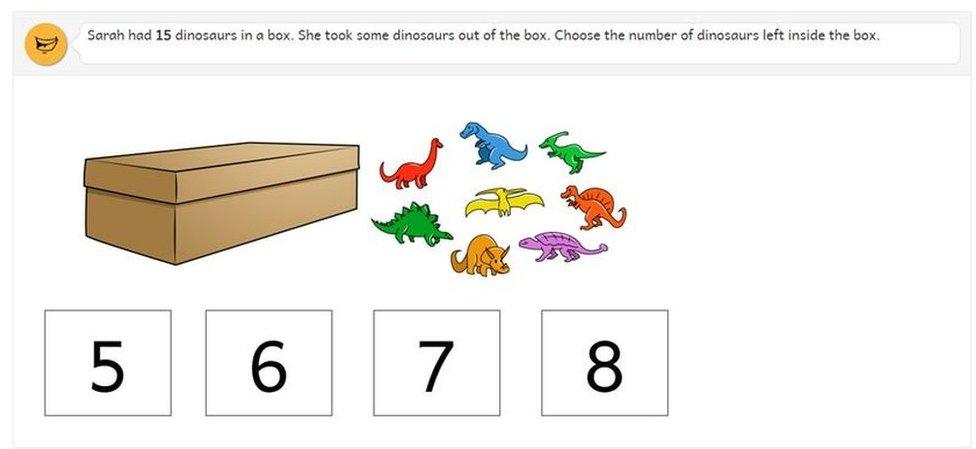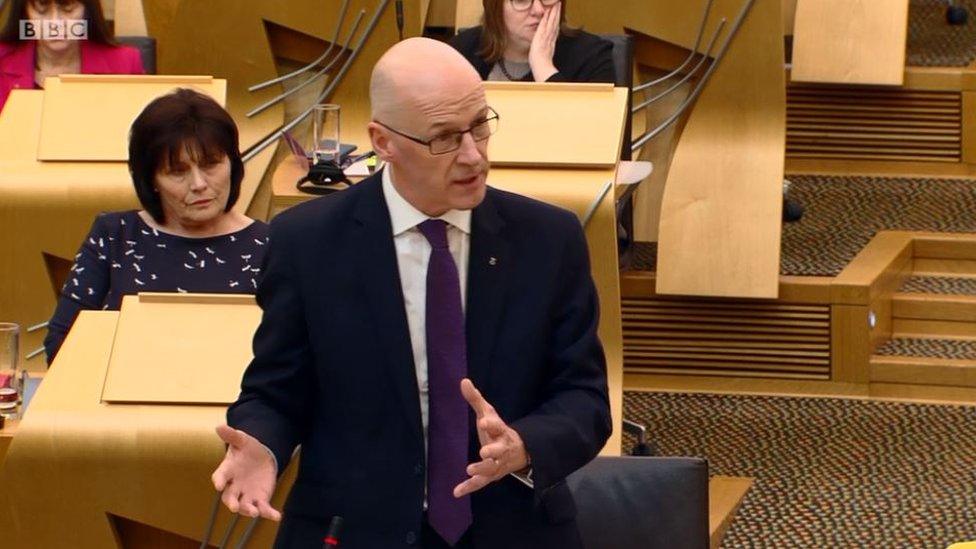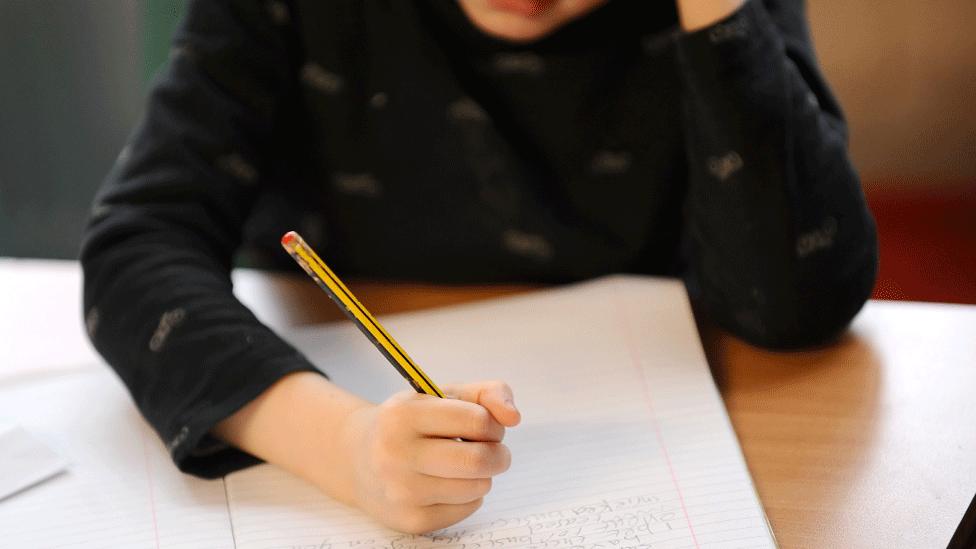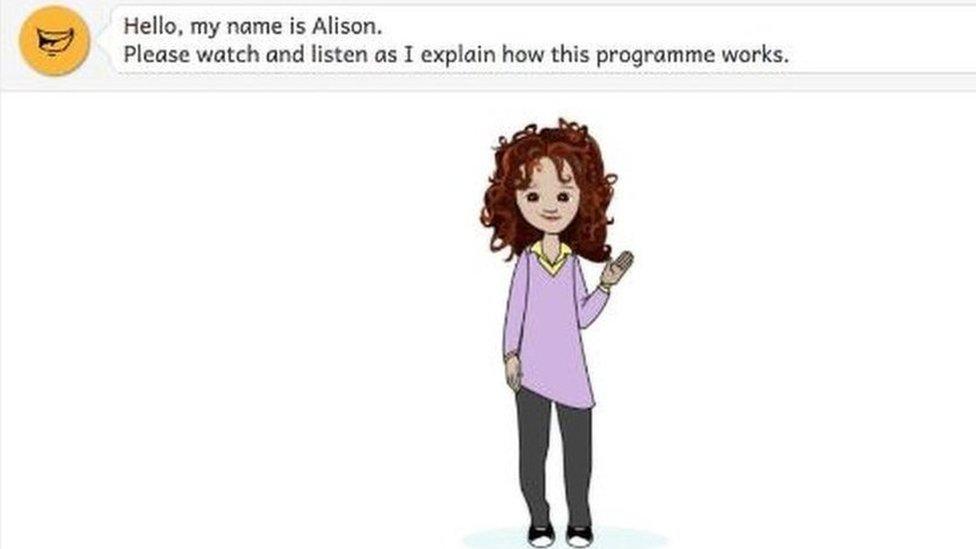Falling numbers take part in P1 assessments
- Published

The number of primary one pupils who sat controversial standardised assessments has fallen, according to official figures., external
Last year 91% of primary one children took part in the literacy and numeracy tests, which are designed to seem like a computer game and not a test.
This compares to about 95% in the 2017-18 school year, when the tests were introduced.
It is not clear from the government statistics why the drop happened.
In both numeracy and literacy assessments, the total number of pupils taking part fell by about 5,000 on the previous year.
Why might the drop have happened?
Campaigners urged parents to ask schools to withdraw their children from the scheme. But supporters will note that the overwhelming majority of children took part, suggesting the campaign to urge parents to boycott the scheme had little impact.
Some schools may have accepted requests from parents to withdraw their children from the scheme.
However, there may also have been more incidences where teachers felt, purely from their own professional judgement, that individual children should not have taken part.
There were claims that some children had been left distressed by the assessments - however, the Scottish government made clear this should never happen.
Why are the assessments controversial?

The assessments provoked intense debate.
They were brought in in a bid to gather more data about children's progress, with literacy and numeracy tests at P1, P4, P7 and S3 level.
The pupils use a computer to complete the tests, which appear like a game that asks them a series of multiple choice questions.
If they get the answers right, the questions get progressively harder.
The Scottish government insists these are not high-stakes tests, and provide teachers with useful information to make early interventions where pupils might be struggling.
However, they faced opposition from groups including the EIS teaching union, political parties, and parents groups like Upstart Scotland.
Some oppose any form of testing in P1 in principle, some argue against how the scheme has been put into practice, and others argue that the assessments are a waste of time for teachers and do not give them any information they did not already have.

Education Secretary John Swinney defended the assessments
And in Holyrood, all the opposition parties voted in 2018 to see the current P1 assessments "halted".
MSPs were all critical of the assessments, albeit for different reasons, with the Greens and Lib Dems hitting out at the principle of standardised testing in general.
A Labour MSP said the data was not useful and some children found the tests upsetting.
Despite this political opposition, the assessments continued but with "important modifications" after they were independently reviewed.
- Published18 April 2019

- Published11 June 2019

- Published18 September 2018
